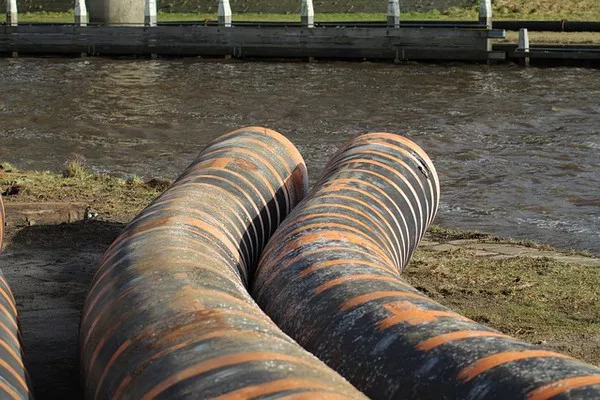A foul odor emanating from your shower drain can be more than just an unpleasant inconvenience; it can be a sign of underlying issues within your plumbing system. The presence of a sewer smell in the shower can be off-putting and cause concern for homeowners. In this article, we will delve into the various factors that contribute to the unpleasant odor and explore effective solutions to eliminate it.
Dried P-Traps
One common cause of sewer smell in shower drains is a dried-out P-trap. P-traps are curved pipes beneath the drain that hold water, creating a barrier that prevents sewer gases from entering your living space. If a shower is not used frequently, the water in the P-trap can evaporate, allowing sewer gases to rise and escape into the bathroom. To address this issue, simply run water in the shower periodically to refill the P-trap and create a proper seal.
Blocked Vent Pipes
Vent pipes play a crucial role in plumbing systems by allowing air to enter and exit the drainage system. When these vent pipes become blocked or clogged, it can lead to a vacuum effect, preventing proper air circulation and causing sewer gases to be pushed back into the living space through the shower drain. Regular inspection and cleaning of vent pipes can help prevent this problem.
Clogged or Blocked Drains
Accumulated debris, hair, soap scum, and other substances can clog the drain over time, providing an ideal breeding ground for bacteria that produce foul odors. Routine maintenance, such as using drain screens and cleaning drains with enzymatic cleaners, can help prevent clogs and the subsequent sewer smell. For persistent blockages, professional plumbing services may be necessary.
Faulty or Damaged Wax Ring
The wax ring is a seal between the base of the toilet and the sewer pipe, preventing sewer gases from escaping into the bathroom. If the wax ring is damaged or improperly installed, it can lead to sewer smells permeating through the shower drain. Inspecting and replacing the wax ring as needed is crucial in maintaining an effective seal and preventing unwanted odors.
Sewer Line Issues
Issues within the main sewer line, such as cracks, leaks, or blockages, can result in sewer smells entering the home through various drain points, including the shower. Tree roots invading the sewer line, corrosion, or a collapsed pipe can contribute to these problems. Professional inspection and repairs are essential to address sewer line issues effectively.
Biofilm Buildup
Biofilm is a slimy layer of bacteria that can accumulate on the walls of pipes, producing unpleasant odors. In shower drains, biofilm can form due to the combination of soap residue, hair, and organic matter. Regular cleaning with specialized drain cleaners or a mixture of baking soda and vinegar can help break down biofilm and eliminate the associated sewer smell.
Sewer Gas Leaks
In rare cases, sewer gas leaks within the plumbing system can lead to foul odors in the shower. This may occur due to damaged or deteriorated pipes, loose connections, or faulty plumbing installations. Professional plumbing inspection and repairs are necessary to address sewer gas leaks and ensure the safety of the home’s occupants.
See Also What Causes Sewer Smell In A Bathroom
Conclusion
The presence of a sewer smell in the shower drain is not only unpleasant but also indicative of potential issues within the plumbing system. Identifying and addressing the root causes of these odors is crucial to maintaining a healthy and odor-free living environment. Regular maintenance, prompt repairs, and professional inspections are key practices in preventing and resolving sewer smell issues in shower drains. By taking a proactive approach to plumbing care, homeowners can ensure the longevity and efficiency of their plumbing systems while enjoying a fresh and pleasant bathroom experience.

